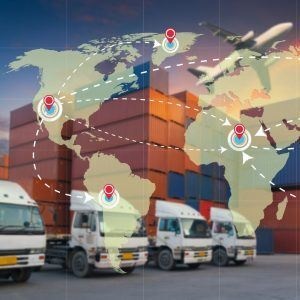
It is not important for us on whose side the power is, but it is important on whose side the law is.
Lawyer
Specializes in criminal, civil and administrative law, recalculation of military pensions
INTERNATIONAL TRADE LAW
 What is International Trade Law? International trade law defines the ways in which states can restrict or regulate trade in goods and services, including in relation to tobacco products. It is largely governed by the agreements of the World Trade Organization (WTO), with some states also parties to bilateral, plurilateral or regional agreements on preferential trade.
What is International Trade Law? International trade law defines the ways in which states can restrict or regulate trade in goods and services, including in relation to tobacco products. It is largely governed by the agreements of the World Trade Organization (WTO), with some states also parties to bilateral, plurilateral or regional agreements on preferential trade.
WTO agreements
The World Trade Organization is "the only global international organization dealing with the rules of trade between countries." It is a multi-stakeholder, rules-based and member-driven organization founded in 1994. The WTO objectives recognize that trade and economic relations among its member states should be built with the aim of improving living standards, ensuring full employment and a large and constantly growing volume of real incomes and effective demand, and expanding the production and trade of goods and services, allowing this is to make optimal use of the world's resources in accordance with the goals of sustainable development, striving to both protect and preserve the environment, and improve the means for this in this way in accordance with their needs and problems at different levels of economic development. "
The WTO provides "a common institutional framework for the conduct of trade relations among its members on matters related to" the WTO agreements, a series of international treaties governing various aspects of international trade.
Accession to the WTO presupposes the adoption of a “single commitment” to accede to all WTO agreements as a “single and indivisible package”. In accepting a single commitment, WTO members join the Marrakesh Agreement establishing the World Trade Organization, as well as more than two dozen “closed agreements” that govern various aspects of trade between members. Under these agreements, Members undertake to impose restrictions on their imposition of tariff barriers (such as import taxes or customs duties) and non-tariff barriers to trade (such as regulatory measures, quantitative restrictions and internal tax laws that apply to both domestic and to imported goods). WTO members also make commitments in other trade-related areas such as intellectual property rights protection, food safety, agriculture, customs valuation and subsidies.
These pages will focus on three WTO agreements that have been the subject of disputes related to tobacco control, namely the General Agreement on Tariffs and Trade 1994 (GATT, including obligations under the GATT 1947), Agreement on Technical Barriers to Trade (Agreement TBT) and the Agreement on Trade-Related Aspects of Intellectual Property Rights (TRIPS Agreement), which governs the adoption of intellectual property standards by participants. It will also briefly review the dispute settlement procedures under the Dispute Settlement Agreement.
An overview of the agreements presented on these pages
GATT (1994 and 1947 versions should be read together) applies to trade in goods. Under the GATT, members agree not to discriminate against imported goods or between imports of different WTO members. They also agree not to impose tariffs in excess of the levels agreed upon in their respective GATT schedules and to restrict the use of quantitative restrictions (such as import quotas). The GATT contains a clause on general exceptions; members can take measures that would otherwise violate the GATT if they fall under the exceptions (which include public health).
TBT applies to technical regulations. Members agree that their technical regulations will not discriminate against the imported products or imports of various WTO members, and that their technical regulations will no longer restrict trade than is necessary to achieve a legitimate aim. They also agree to notify certain technical regulations to the TBT committee, use international standards for technical regulations, as appropriate, and provide information on their technical regulations. Several TBT provisions and preambles recognize that members have the right to take action to achieve legitimate goals such as public health.
TRIPS applies to the protection and enforcement of intellectual property rights. Members agree to include certain minimum standards for the protection of intellectual property in their domestic legislation. TRIPS should be read in conjunction with its goals and principles, which recognize the importance of public health and balancing rights and responsibilities, as well as the Doha Declaration on TRIPS and Public Health, a ministerial declaration that states that TRIPS “does not work and should not» not allow members to take measures to protect public health. The Dispute Resolution Understanding establishes a rules-based state to establish a dispute resolution procedure in relation to WTO agreements, including an appeal process.
As of January 2021, the WTO has 164 members, and there is significant overlap between WTO members and those of the WHO FCTC.
Preferential trade agreements
In addition to being a WTO member, many states (including Parties to the WHO FCTC) are parties to other trade agreements. These agreements (known as preferential trade agreements or PTAs) are usually bilateral or regional agreements. The TCP parties grant each other trade preferences, usually by canceling tariffs. TCPs may also include non-tariff obligations similar to those found in WTO agreements, or obligations that impose stricter restrictions on their parties than WTO rules, such as requiring higher levels of intellectual property protection than the TRIPS Agreement. Although many TCPs provide for the settlement of interstate disputes, in general, states have used WTO dispute settlement procedures when they wanted to initiate dispute settlement procedures against other WTO members.
Calculate the price of assistance:
1 question
Have other lawyers handled your case?
2 question
Are you in Kyiv or Kyiv region?
3 question
Do you need legal assistance urgently?
Other articles on this topic:
call back
during the day




